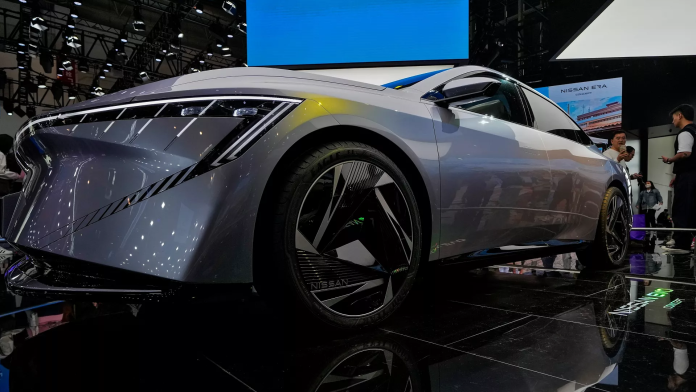The European Union decided to protect its car manufacturers by choosing between its ambitious climate targets and a significant loss of electric vehicle market share to China.
However, analysts say the long-term effect of efforts to reduce greenhouse gas emissions remains to be seen. Preliminary duties of up to 37.6 per cent on Chinese-made electric vehicles, introduced by the EU earlier this month, “might slow sales of EVs,” which are a key component of any plan to slow climate change, Miranda Schreurs, a professor at the Technical University of Munich, acknowledged.
It probably does have to do with concerns about the tariffs and also concerns about the [extent to which] Europe is really supporting the transition to EVs right now. That can have a negative impact if European consumers feel like the Green Deal is hurting them rather than helping them. (…) And many people are much more worried about inflation and their pockets (…) so there’s the question of what will the public accept?
The EU imposed new duties on top of the existing 10% tariff after accusing Beijing of offering “unfair subsidisation” that threatened economic damage to European electric car makers. The bloc said Chinese-made electric cars are sold at prices 20 per cent lower than their European counterparts.
Beijing responded last week with an anti-dumping investigation into EU imports that singled out Danish, Dutch, and Spanish pork companies.
“China, which wasn’t a big international player in terms of automobile exports, has become the dominant player – the biggest player – in EV exports in the last several years. This is putting a lot of pressure on European manufacturers of automobiles.”
Due to government policies and subsidies, Chinese company BYD overtook Tesla last year to become the world’s leading EV manufacturer. According to some forecasts, by next year Chinese-made EVs could account for 15% to 25% of all such vehicles sold in the EU.
Any slowdown in EV sales will inevitably affect the continent’s so-called Green Deal, which aims to reduce greenhouse gas emissions from the transport sector, mainly by increasing the share of EVs. EU plans call for a 37.5 per cent reduction in emissions from 1990 levels by 2030 and the sale of only zero-emission vehicles by 2035.
Slight impact
However, many analysts believe that fares will have only a slight impact on the rate of electric vehicle adoption. Schreurs believes that reduced enthusiasm for electric cars may encourage more people to switch to public transport, which would contribute to even greater emission reductions.
Wan-Hsin Liu, senior researcher at the Kiel Institute for the World Economy, said there would be short-term price increases, but “still far away from a price shock” that would deter consumers.
Even due to these countervailing duties, Chinese [battery electric vehicle] producers will not just transfer the whole duty costs to consumers completely.
In the long term, she said, price increases would still be manageable and other non-Chinese EV makers would be able to offset any decline in sales from China.
Schreurs said China could also help itself by moving much of its car manufacturing to Europe, where about 13.8 million people work in the EU auto industry, including 3.5 million employed in direct and indirect production, according to European Commission data.
“If China is investing in Europe in a way that it’s creating jobs, it can also decrease tensions [with the EU]. The support for [Chinese EVs] will be stronger both from the public and government officials.”
Preliminary tariffs remain the subject of trade talks in November, and both Schreurs and Liu believe the EU and China will be able to resolve some of their differences by then. However, Liu expressed some reservations.
China currently perceives the EU’s investigation and decision on EVs and others as protectionist measures with the goal to protect solely the domestic industry. China thinks that the responsibility for causing a potential trade war lies within the EU.
However, the outcome would depend on the willingness of both sides to compromise, she emphasised.
